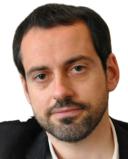
Psychology
Running a Psychology Center in the Time of Corona
How has the crisis changed the way we work and think about psychotherapy?
Posted April 12, 2020 Reviewed by Gary Drevitch
Don't worry, this is not another post about online therapy. I would just like to offer a few initial reflections on how our center—headspace, a public psychological clinic for youth in Jerusalem—has been redefined by this crisis. What we have been doing, what we have struggled with, and what we think we'll need to do much better.
About two weeks ago we moved all of our services online and added some new ones. Strange things began to happen: Clients playing on PlayStation while talking to us, mothers bringing food to their teenagers during sessions ("honey, hummus?"), cats roaming around, people talking to us from their cars, their balconies, their basements, from rooms they share with other people. We conducted an intake session with someone who was swinging on a swing in a park, while his small nephew was coming in and out of the video frame.
"Are you sure it's a good time...?"
"Yes, yes, of course. What were you saying again?"
Intakes at headspace are usually conducted with different members of the family present, leaving enough time for the therapist to be alone with the parents and the kids... Not now.
The headspace model, originally from Australia, strives to be flexible and creative even in regular times. Now we call it headspace on steroids. Everything is exaggerated, amplified. Add to it our Middle-Eastern informality and what you've got is something that feels like guerilla therapy. We're doing things fast and we're making mistakes.
Examples:
We opened a Zoom group for teenagers, only to find out that they are fed up with Zoom already and the last thing they need is an "online support group." Their parents, however, seem to like it quite a bit, so our parents group is popular and they tell us that it's been useful. We opened a hotline to which we receive occasional phone calls, but we feel it's not enough so we're enhancing it with an online chat. We're breaking the usual fifty-minute sessions to two, sometimes three parts for kids who can't (or won't) Zoom with us for so long. Boundaries, the therapeutic setting—all are being crushed in front of our eyes. We're creating a peer-support group on Telegram: Maybe kids will like it and find it useful, or maybe not and we'll abandon it. We're doing Q-and-A sessions with teenagers on a popular Israeli Instagram platform in which they ask us cute questions like what to do if I miss my dog and he is now locked with my grandparents? We're trying to reach them in any way possible, to be of service to them, and add something to their sense of wellbeing in these strange times.
It's become quite annoying for many of us, I think, to hear the (sometimes implicit) message that Corona should really be an opportunity: Why don't we get up from our couch, put the ice cream away, stop staring at the phone, and start learning Latin? We have been encouraged to seize the moment in therapy as well, make something out of this crisis, use it to develop things that will stay after it is gone. Annoying or not, for psychology centers at least, I think it's true.
Corona created a sense of urgency in our center ("headspace on steroids..."). We feel that we don't have time, and, to use a popular word nowadays, that we have to be ahead of the curve. We cannot wait for orders from someone high above, we cannot reflect and think deeply about what sort of intervention would be the best in different scenarios—what we would usually do, but not now. We have to act. Quickly. Things that took us months to decide (to introduce chats, online groups, crisis hotlines) we're deciding in a matter of days, sometimes hours. Which creates a certain frenzied energy, with solutions that are often sub-optimal. "This is not why I became a therapist," someone at headspace recently told me, bemoaning the call to act impulsively, to turn therapy (on occasion) into a check-in on someone who is playing a video game just to see if he's alright. For us, this has been the main challenge so far: balancing the need to constantly evolve, change, not to stay behind; to be where the kids are, to respect them and provide solutions, while staying grounded and stable. To use a psychological aphorism: to provide them with a secure base in times of enormous change, global transformation, and anxiety.
We're not doing it perfectly; far from it. We're frequently erring on the side of doing too much, too quickly. But it seems to us that clinics that do not move fast enough might stay behind and be forgotten by time, and miss their clients and their rapidly evolving needs. And maybe, in doing what we're doing, we're showing our young clients that the point is not to avoid mistakes and be afraid of them, but rather to avoid sitting in silence, passively moaning about the unfairness of it all ("The politicians!") and in the small piece of the world that is ours, to do what we can to fight.

